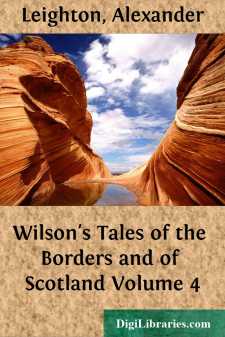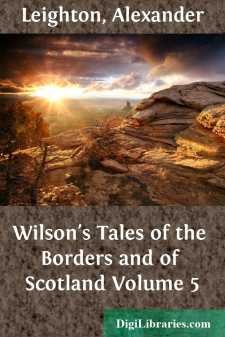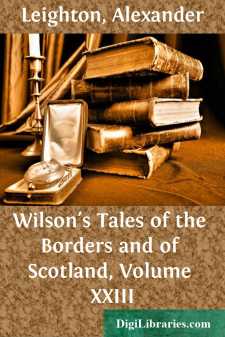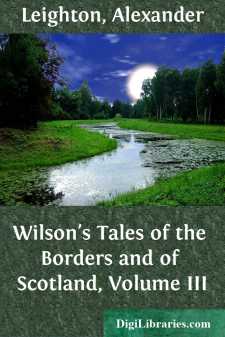Categories
- Antiques & Collectibles 13
- Architecture 36
- Art 48
- Bibles 22
- Biography & Autobiography 813
- Body, Mind & Spirit 142
- Business & Economics 28
- Children's Books 17
- Children's Fiction 14
- Computers 4
- Cooking 94
- Crafts & Hobbies 4
- Drama 346
- Education 46
- Family & Relationships 57
- Fiction 11829
- Games 19
- Gardening 17
- Health & Fitness 34
- History 1377
- House & Home 1
- Humor 147
- Juvenile Fiction 1873
- Juvenile Nonfiction 202
- Language Arts & Disciplines 88
- Law 16
- Literary Collections 686
- Literary Criticism 179
- Mathematics 13
- Medical 41
- Music 40
- Nature 179
- Non-Classifiable 1768
- Performing Arts 7
- Periodicals 1453
- Philosophy 64
- Photography 2
- Poetry 896
- Political Science 203
- Psychology 42
- Reference 154
- Religion 513
- Science 126
- Self-Help 84
- Social Science 81
- Sports & Recreation 34
- Study Aids 3
- Technology & Engineering 59
- Transportation 23
- Travel 463
- True Crime 29
Wilson's Tales of the Borders and of Scotland, Volume 2 Historical, Traditional, and Imaginative
Description:
Excerpt
THE WIFE OR THE WUDDY.
“There was a criminal in a cart
Agoing to be hanged—
Reprieve to him was granted;
The crowd and cart did stand,
To see if he would marry a wife,
Or, otherwise, choose to die!
‘Oh, why should I torment my life?’
The victim did reply;
‘The bargain’s bad in every part—
But a wife’s the worst!—drive on the cart.’”
Honest Sir John Falstaff talketh of “minions of the moon;” and, truth to tell, two or three hundred years ago, nowhere was such an order of knighthood more prevalent than upon the Borders. Not only did the Scottish and English Borderers make their forays across the Tweed and the ideal line, but rival chieftains, though of the same nation, considered themselves at liberty to make inroads upon the property of each other. The laws of meum and tuum they were unable to comprehend. Theirs was the strong man’s world, and with them might was right. But to proceed with our story. About the beginning of the seventeenth century, one of the boldest knights upon the Borders was William Scott, the young laird of Harden. His favourite residence was Oakwood Tower, a place of great strength, situated on the banks of the Ettrick. The motto of his family was “Reparabit cornua Phœbe,” which being interpreted by his countrymen, in their vernacular idiom, ran thus—“We’ll hae moonlight again.” Now, the young laird was one who considered it his chief honour to give effect to both the spirit and the letter of his family motto. Permitting us again to refer to honest Falstaff, it implied that they were “gentlemen of the night;” and he was not one who would loll upon his pillow when his “avocation” called him to the foray.
It was drawing towards midnight, in the month of October, when the leaves in the forest had become brown and yellow, and with a hard sound rustled upon each other, that young Scott called together his retainers, and addressing them, said—“Look ye, friends, is it not a crying sin and a national shame to see things going aglee as they are doing? There seems hardly such a thing as manhood left upon the Borders. A bit scratch with a pen upon parchment is becoming of more effect than a stroke with the sword. A bairn now stands as good a chance to hold and to have, as an armed man that has a hand to take and to defend. Such a state o’ things was only made for those who are ower lazy to ride by night, and ower cowardly to fight. Never shall it be said that I, William Scott of Harden, was one who either submitted or conformed to it. Give me the good, old, manly law, that ‘they shall keep who can,’ and wi’ my honest sword will I maintain my right against every enemy. Now, there is our natural and lawful adversary, auld Sir Gideon Murray o’ Elibank, carries his head as high as though he were first cousin to a king, or the sole lord o’ Ettrick Forest. More than once has he slighted me in a way which it wasna for a Scott to bear; and weel do I ken that he has the will, and wants but the power, to harry us o’ house and ha’....












